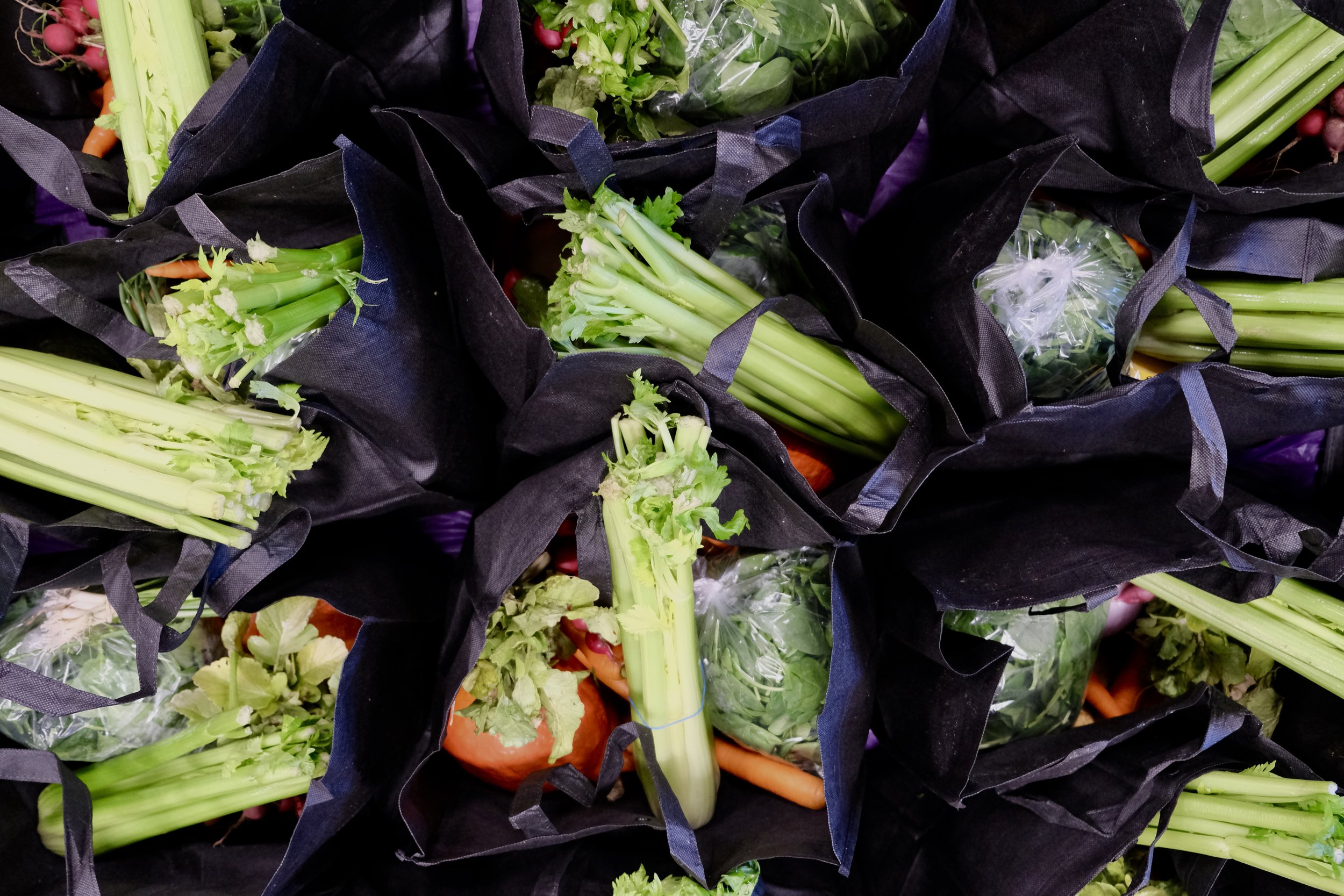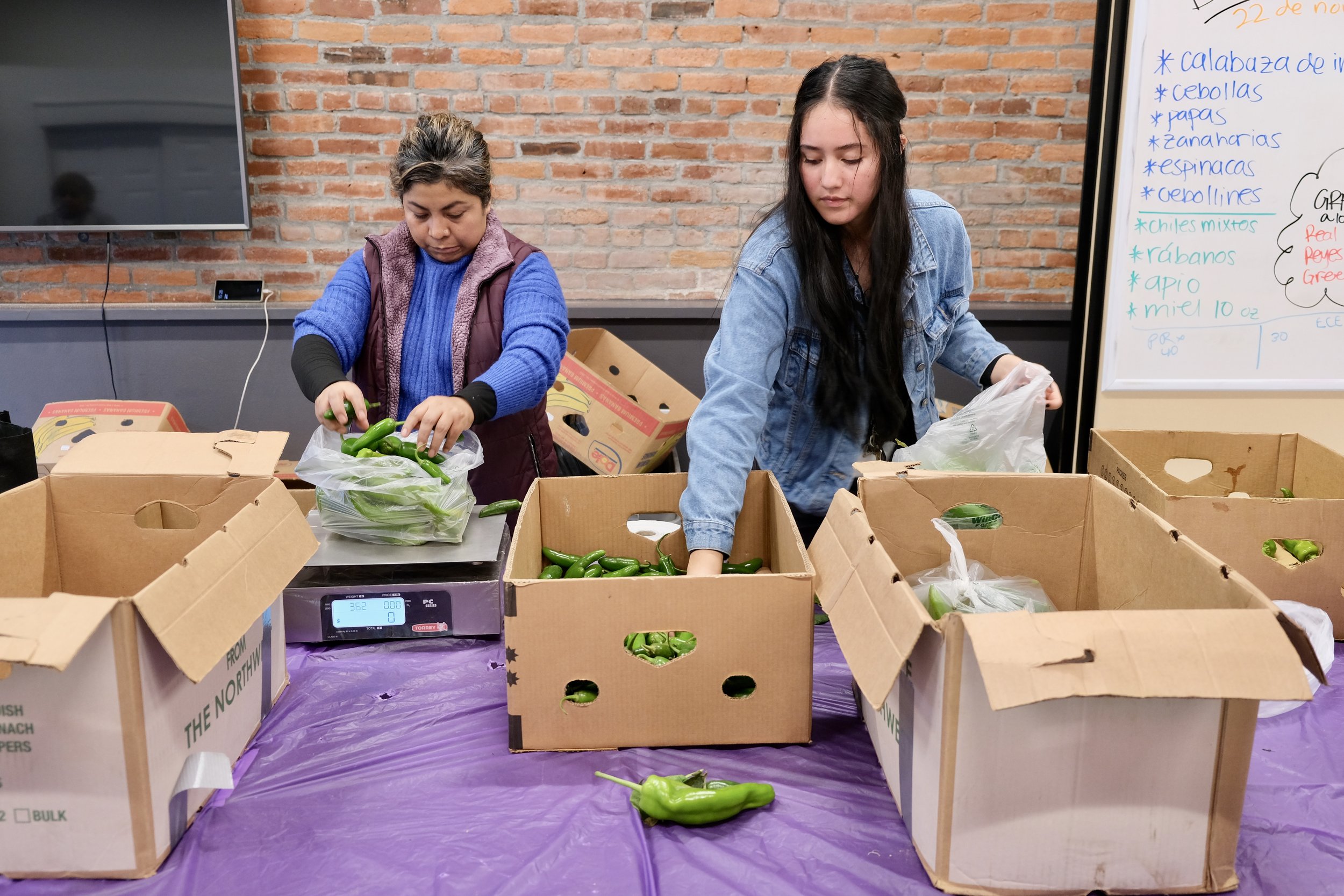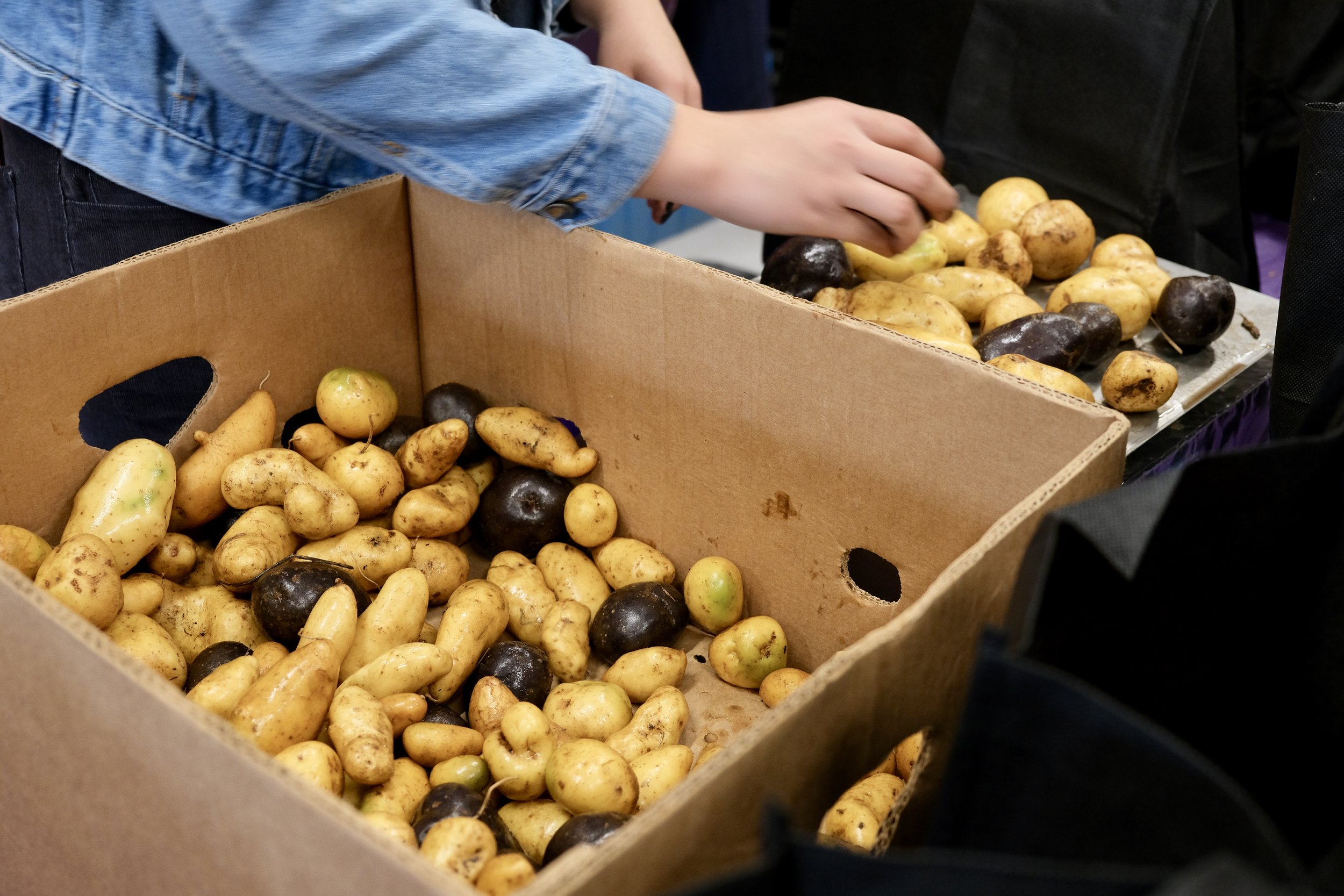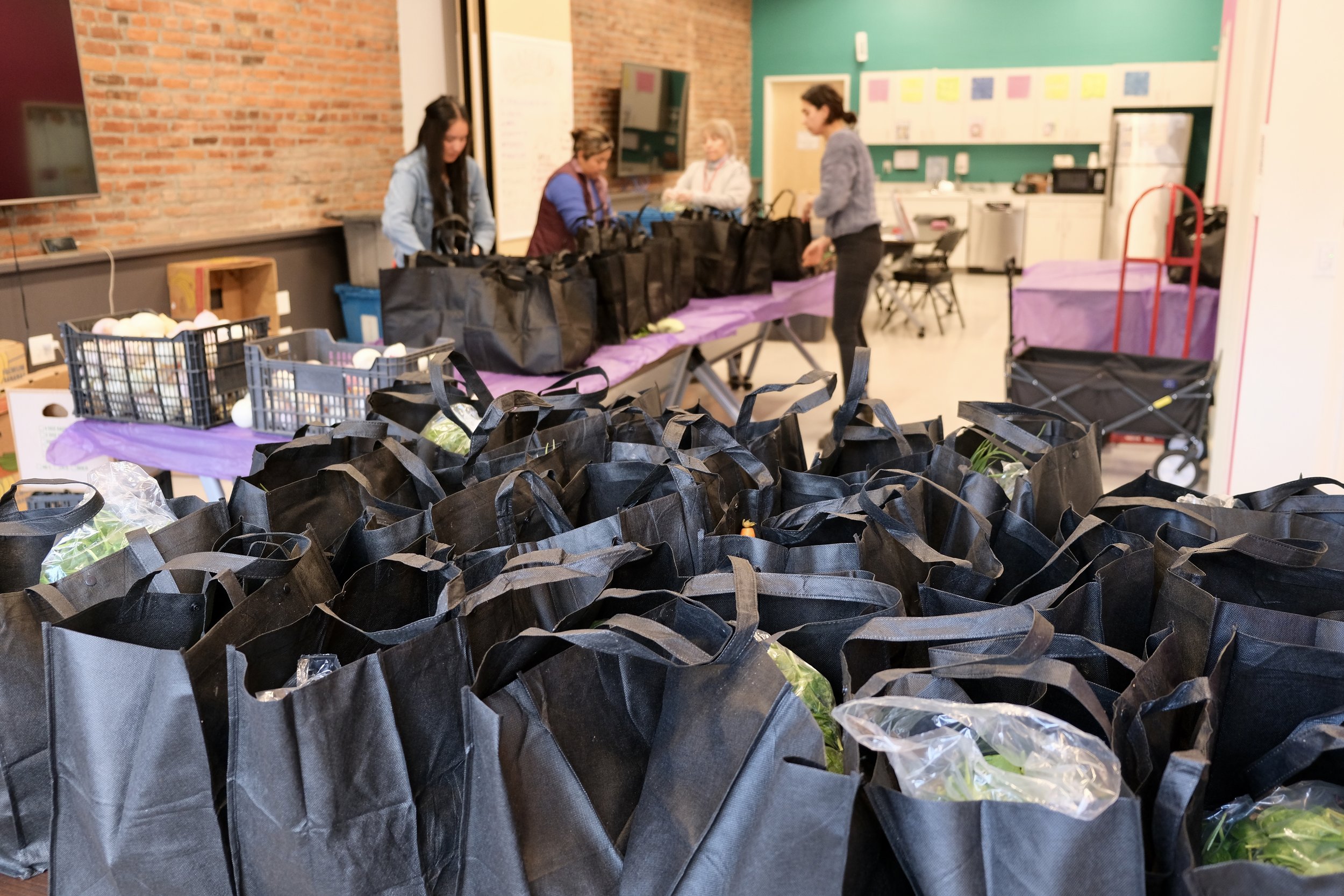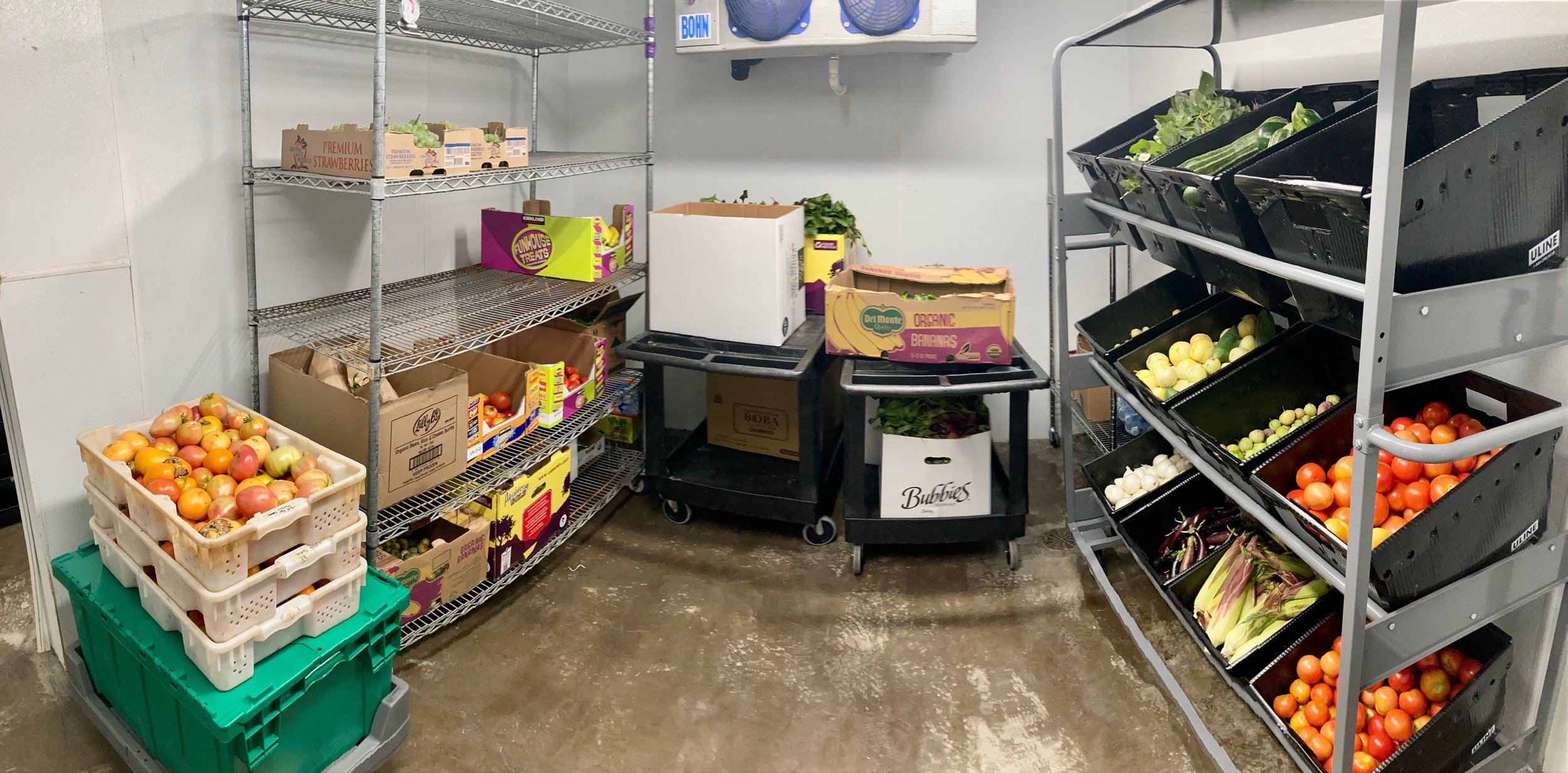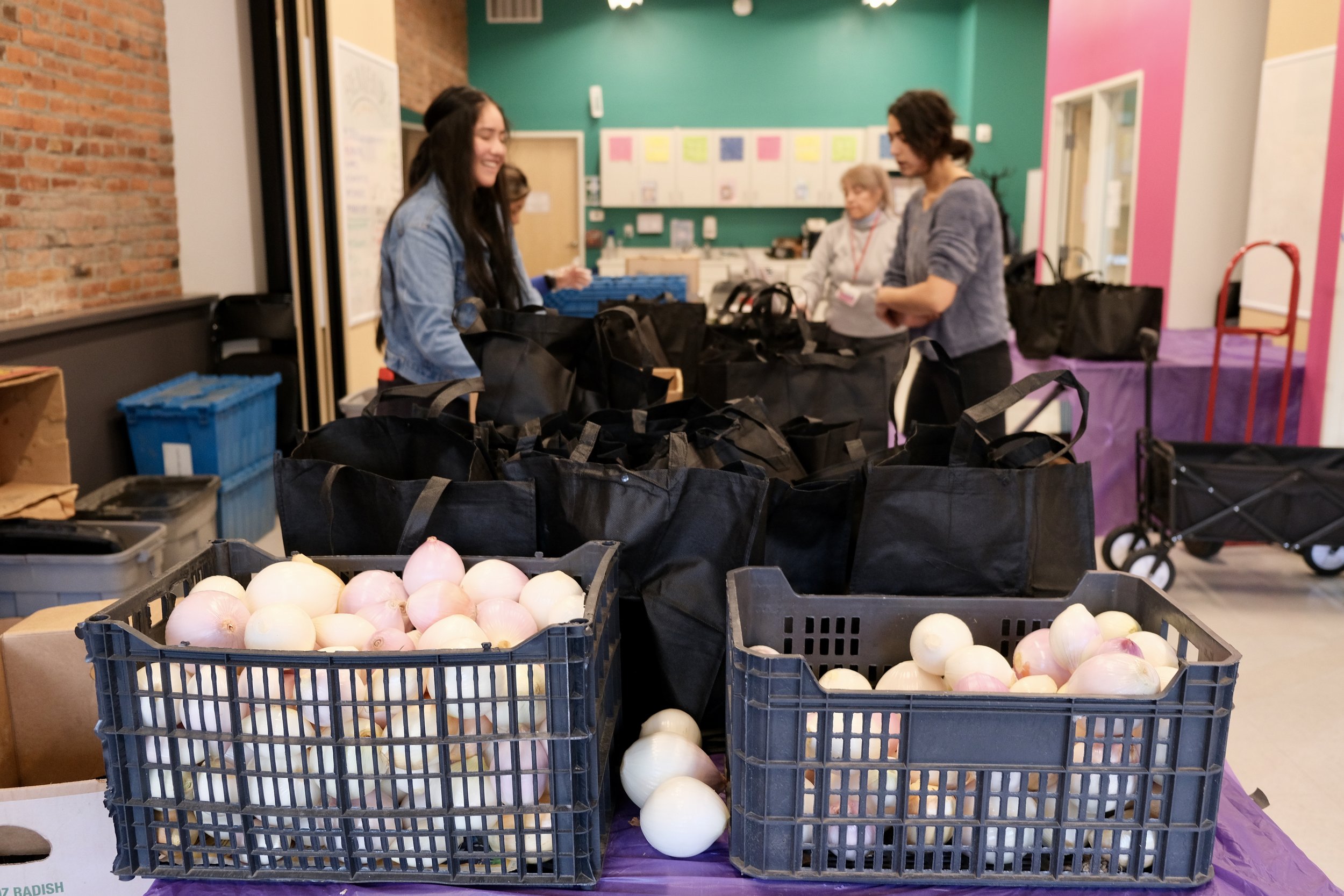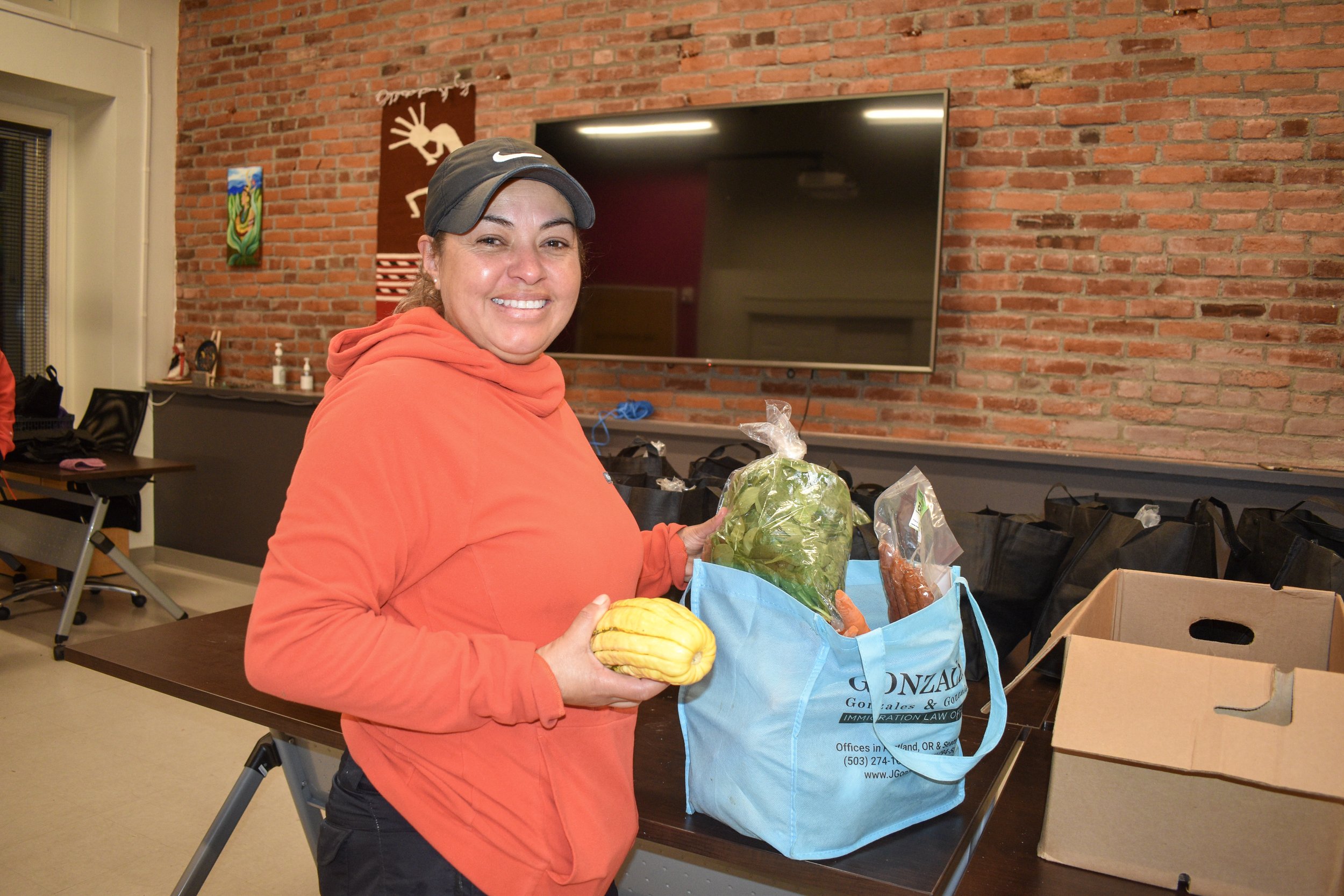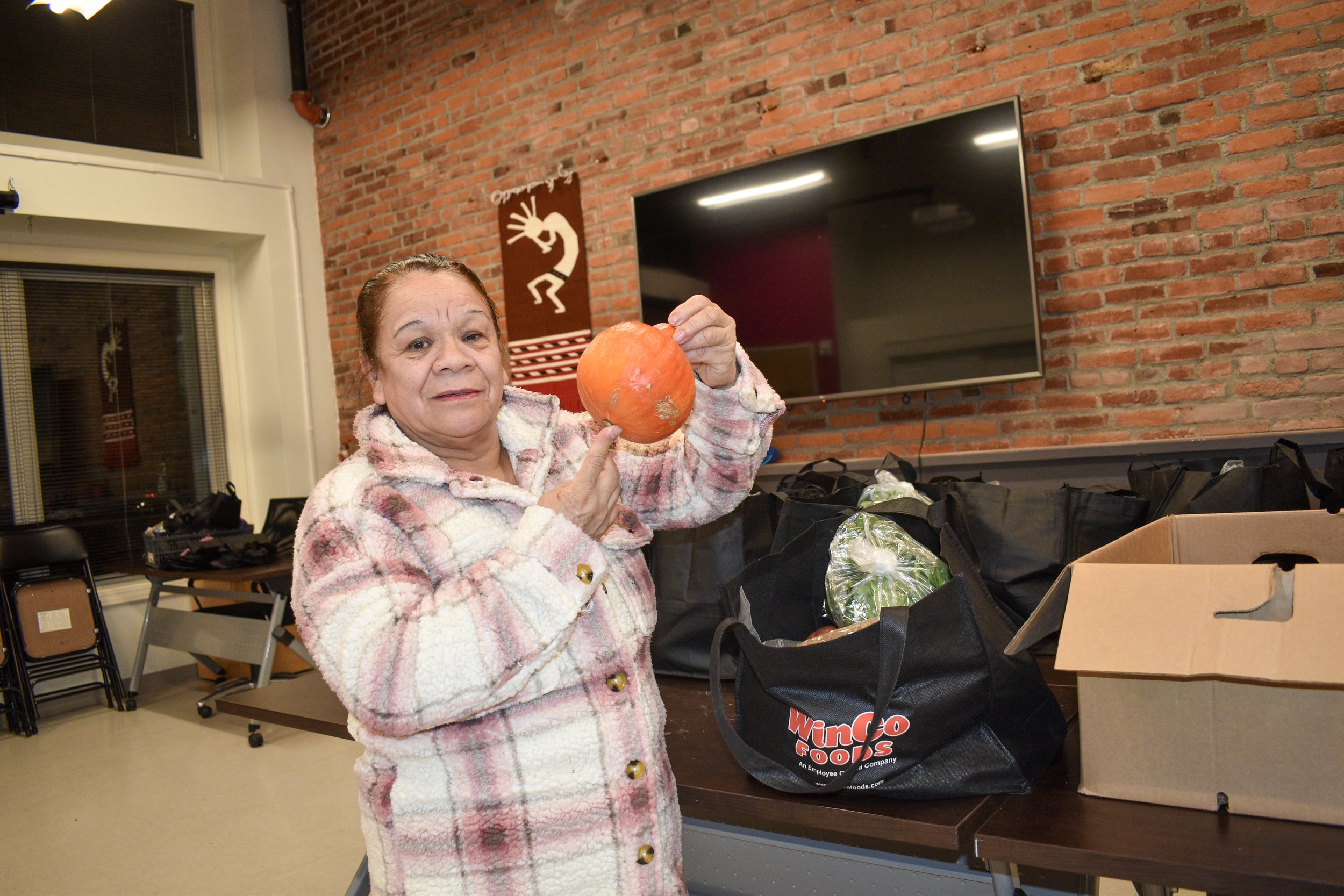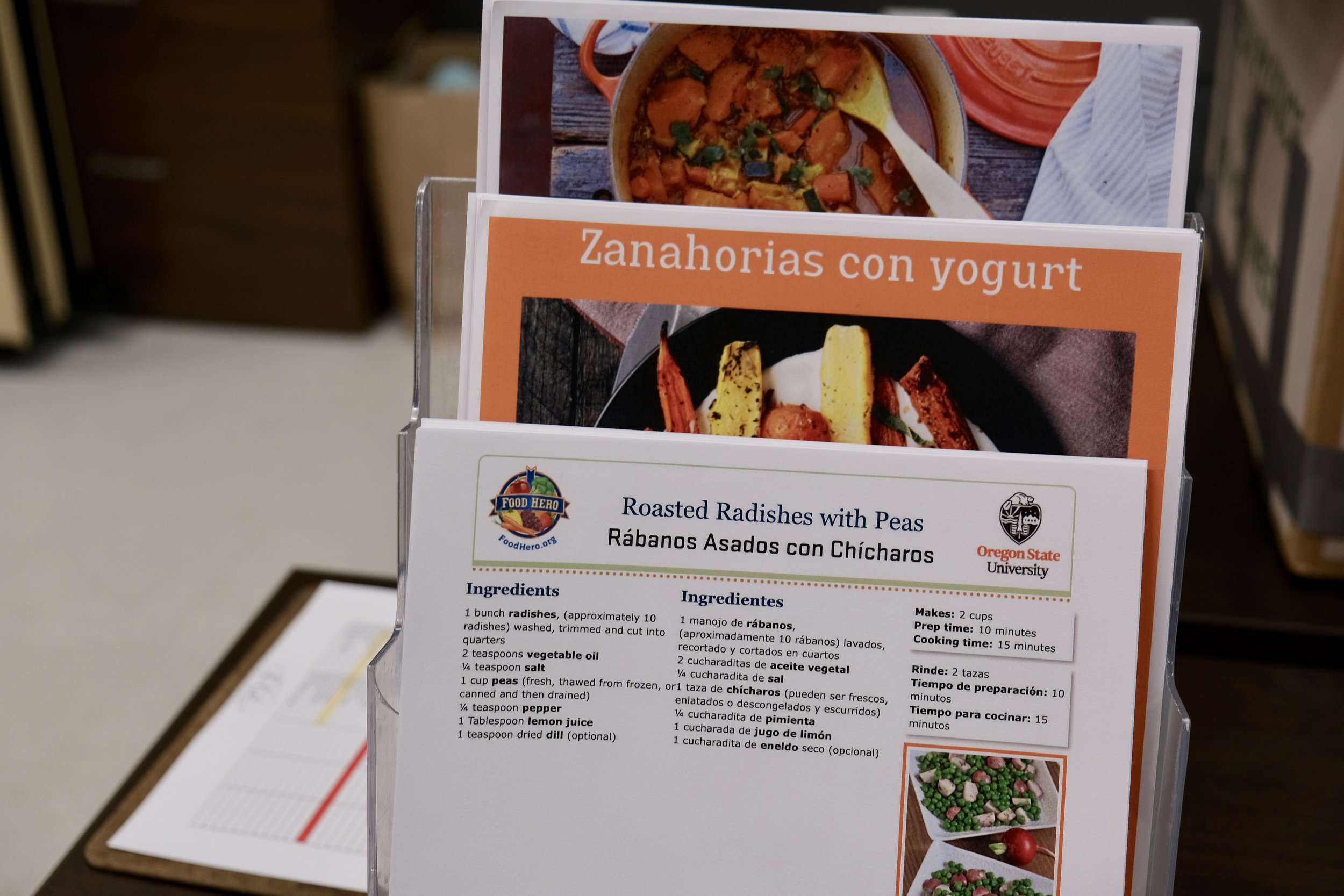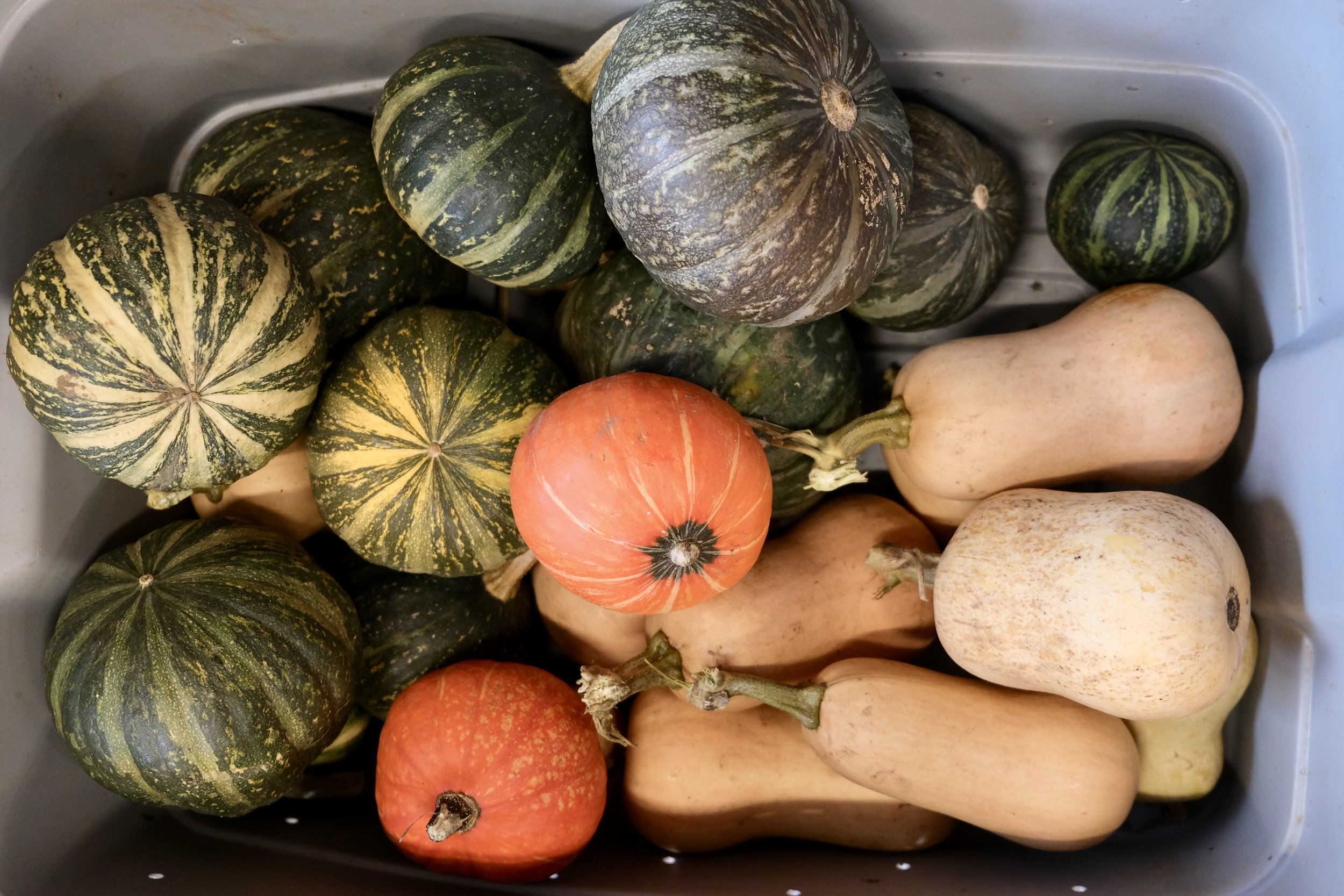Adelante's Farm to Pantry Project Wraps Up Its Second Year, Serving Over 1,700 Families In Washington County
The pandemic brought many challenges to our community, including access to food. According to the Oregon Food Bank, “Oregon’s food insecurity rate rose 21% between 2019 and 2020, with the height of the pandemic resulting in nearly 1.7 million neighbors seeking food assistance — double what we saw in the prior year.”
Due to pandemic-related interruptions in the supply chain, there were food shortages in the grocery stores alongside a surplus of fresh produce from farmers who used to supply restaurants, schools, and commercial enterprises. Without their normal market outlets, these farmers found themselves stuck with extra products, without the resources or connections to sell them while they were still fresh.
While disruptions in the supply chain were a problem, they could also be a solution. Adelante Mujeres’s Regenerative Agriculture Program, together with partner Latine farmers, saw the opportunity to address both needs. Latine farmers could sell their produce, and families in our programs could access free, nutritious produce.
A couple days a week, a classroom in the Adelante Mujeres building fills with fresh produce instead of students as our Farm to Pantry project team packs up colorful bags of food for families in our programs. Promotores de Salud (volunteer Community Health Workers) from our Health Equity Program help bag the produce each week.
For its second year, the Adelante Mujeres Farm to Pantry project has partnered with the Forest Grove Foundation, Centro Cultural, Oregon Food Bank, and other Adelante Mujeres programs such as Produce RX and Early Childhood Education to create a farm-to-table style food pantry that has served over 1,700 families in Washington County. “It is my first time attending this program,” said Trinidad Garcia, and Farm to Pantry recipient, "which has been a great help, especially when you are unemployed. I am so grateful.”
Another participant, Portino Delgado, said, “This program positively impacts my family's quality of life and is a great help. We can eat fresh food and vegetables while we save money.”
Portino Delgado picking up his weekly produce.
Families have received farm direct products ranging from cabbage to tomatillos, and dried chiles to winter squash, totaling more than 20,000 lbs of fresh produce and farm direct products such as jam and honey from Latine farmers in the region.
This unique project is an investment for a long-term solution to build an equitable food system by developing beginning farmer skills and growing regional market for locally produced, culturally appropriate crops, all while building new distribution channels to ensure that access to these products that enrich our community are enjoyed by all.

